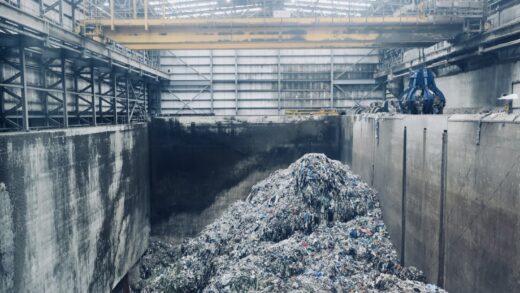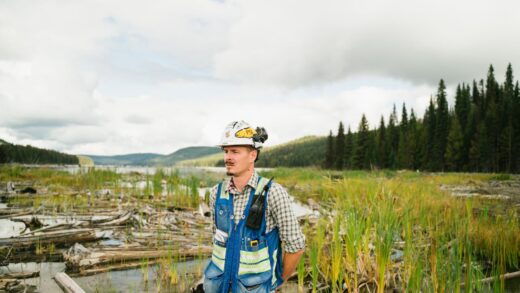In this rapidly changing world, green careers have emerged as a crucial component of the job market. As environmental concerns grow, so does the demand for professionals who can make a positive impact on the planet. This article will guide you through the world of green careers and offer valuable tips for a successful job search in this exciting field.
The Growing Importance of Green Careers
In an era defined by environmental challenges and the urgent need for sustainable solutions, green careers have emerged as a beacon of hope. Their significance transcends mere professional choices; they represent a collective commitment to safeguarding our planet and fostering a more sustainable future.
As we grapple with climate change, resource depletion, and ecological degradation, the demand for professionals who can address these issues has skyrocketed. Green careers are no longer confined to the periphery of employment options; they are at the forefront of a global movement towards environmental responsibility.
The importance of green careers can be distilled into several key factors:
1. Environmental Stewardship: Green careers are synonymous with environmental stewardship. Professionals in these fields work tirelessly to minimize the negative impact of human activities on the environment. They are the architects of innovative solutions, from designing eco-friendly buildings to developing sustainable energy sources, and they play a pivotal role in preserving the natural world.
2. Economic Growth: Green industries are not just about environmentalism; they are also engines of economic growth. As governments and businesses increasingly invest in sustainability, green careers contribute to job creation, stimulate innovation, and drive economic prosperity. The green sector is a robust pillar of economic development, offering stability and opportunities for career advancement.
3. Social Responsibility: Beyond profit margins, green careers embody social responsibility. They acknowledge the interconnectedness of human well-being and environmental health. By promoting ethical practices, green professionals foster communities that are healthier, safer, and more equitable.
4. Adaptation to Change: The global landscape is shifting, and green careers are at the forefront of adaptation. From climate change mitigation strategies to transitioning to renewable energy sources, these professionals are shaping industries that will endure the test of time. They possess the skills and knowledge needed to navigate an ever-changing world.
5. Personal Fulfillment: Choosing a green career is not just a pragmatic decision; it’s a path to personal fulfillment. Individuals who pursue these careers often report higher job satisfaction, as they derive meaning from their work’s positive impact on the environment and society.
In conclusion, the growing importance of green careers cannot be overstated. They are a response to the pressing challenges of our time, a catalyst for positive change, and a source of hope for a sustainable future. As the world embraces the need for environmental responsibility, green careers stand as a testament to our commitment to leaving a better planet for future generations. Whether you are a recent graduate or a seasoned professional, consider the immense value of joining the ranks of those who are dedicated to making a difference through green careers.
Types of Green Careers
The world of green careers is as diverse as the ecosystems they aim to protect. Whether you have a passion for renewable energy, conservation, sustainable agriculture, or eco-friendly construction, there’s a green career path tailored to your interests. Here are some of the most promising types of green careers:
- Renewable Energy Specialists: Join the renewable energy revolution by becoming a solar panel installer, wind turbine technician, or a sustainable energy engineer. These professionals harness the power of nature to provide clean, efficient energy solutions.
- Sustainable Agriculture Experts: Play a vital role in feeding the planet responsibly. As a sustainable agriculture specialist, you can work on organic farms, promote sustainable farming practices, or advocate for ethical food production.
- Green Construction Professionals: Building green is the way of the future. Green construction experts are involved in creating eco-friendly buildings, implementing energy-efficient technologies, and reducing construction’s carbon footprint.
- Environmental Consultants: Help businesses and organizations make environmentally responsible decisions. Environmental consultants assess the impact of human activities on the environment and provide guidance on sustainable practices.
- Transportation and Logistics Specialists: Contribute to greener transportation solutions. From electric vehicle technicians to logistics coordinators for eco-friendly shipping, these professionals play a crucial role in reducing the carbon footprint of transportation systems.
Qualifications and Education

To embark on a successful green career, it’s essential to equip yourself with the right qualifications and education. Here’s how to prepare for a rewarding journey in the world of green jobs:
- Degrees and Certifications: Many green careers require specific degrees or certifications. Consider pursuing degrees in environmental science, sustainable agriculture, renewable energy engineering, or related fields. Certifications, such as LEED (Leadership in Energy and Environmental Design), can also enhance your qualifications.
- Vocational Training: For hands-on careers like solar panel installation or wind turbine maintenance, vocational training programs offer valuable practical skills. Look for accredited programs that provide certification upon completion.
- Continuing Education: The green industry is dynamic and ever-evolving. Stay up-to-date with the latest developments by participating in workshops, webinars, and online courses. Continuing education demonstrates your commitment to professional growth and sustainability.
- Internships and Practical Experience: Gain real-world experience through internships and volunteer opportunities. Practical experience not only enhances your resume but also allows you to network with professionals in your chosen field.
- Networking: Join industry associations and attend conferences to connect with like-minded individuals and potential employers. Networking can open doors to job opportunities and help you stay informed about industry trends.
By investing in your education and qualifications, you’ll be well-prepared to pursue a fulfilling green career and contribute to a more sustainable future.
Job Search Strategies
Securing a green career requires a strategic and purposeful job search approach. Here are some effective strategies to guide your journey toward landing your dream green job:
- Crafting Your Green Resume: Tailor your resume to highlight your passion for sustainability and relevant skills. Emphasize any coursework, certifications, or volunteer experiences related to green initiatives.
- Networking in the Green Industry: Networking is invaluable in the green sector. Attend industry events, conferences, and workshops to connect with professionals in your field of interest. Joining online forums and LinkedIn groups focused on sustainability can also help you build a valuable network.
- Using Job Search Platforms Effectively: Explore job boards and websites that specialize in green job listings. Use specific keywords like “sustainability,” “renewable energy,” or “environmental conservation” to narrow your search and find positions that align with your interests.
- Customizing Your Cover Letter: Craft a compelling cover letter that showcases your commitment to environmental causes and how your skills can contribute to the organization’s sustainability goals. Personalize each cover letter for the specific job you’re applying for.
- Navigating Green Job Fairs and Conferences: Attend green job fairs and industry conferences to meet potential employers face-to-face. These events often feature workshops and seminars that can enhance your knowledge and marketability.
- Highlighting Transferable Skills: Even if you’re transitioning from a different field, emphasize transferable skills such as project management, problem-solving, and teamwork that are valuable in green careers.
- Volunteering and Internships: Gain practical experience and expand your network by volunteering or interning with organizations that align with your green career goals. These opportunities can often lead to paid positions.
Salary Expectations
While pursuing a green career is undoubtedly rewarding in terms of making a positive impact on the environment, it’s also essential to understand the salary expectations in this field. Here’s what you should know:
- Industry Variation: Green careers encompass a wide range of industries, each with its own salary norms. For instance, renewable energy professionals may earn different salaries compared to sustainable agriculture experts. Research typical salary ranges for your specific field of interest.
- Experience Matters: Like any other industry, experience plays a significant role in determining your salary. Entry-level positions may offer lower salaries, while seasoned professionals with years of experience can command higher pay.
- Location Considerations: Salary levels can vary by region. Urban areas with high demand for green professionals may offer higher salaries, but the cost of living can also be higher. Consider your geographical preferences and research salary trends in those areas.
- Advanced Degrees and Certifications: Holding advanced degrees or specialized certifications can positively influence your earning potential in green careers. Employers often reward additional education and expertise with higher salaries.
- Benefits and Perks: In addition to base salaries, green employers may offer attractive benefits such as health insurance, retirement plans, flexible work arrangements, and opportunities for professional development. These perks can significantly enhance your overall compensation package.
- Negotiation Skills: Don’t hesitate to negotiate your salary when receiving a job offer. Research industry standards and be prepared to articulate your qualifications and the value you bring to the organization.
Understanding salary expectations in your chosen green career will help you make informed decisions during your job search and ensure that your compensation aligns with your financial goals.
Conclusion
As we conclude our exploration of green careers in high demand and the strategies for a successful job search, it’s important to reflect on the immense opportunities and responsibilities that come with pursuing a path in sustainability.
In a world facing pressing environmental challenges, green careers have taken center stage, offering individuals the chance to not only secure meaningful employment but also contribute to a more sustainable future. These careers are not just about making a living; they are about making a difference.
By choosing a green career, you are aligning yourself with a global movement committed to preserving our planet, conserving resources, and mitigating climate change. Your work can directly impact the well-being of current and future generations, ensuring they inherit a world that is healthier and more prosperous.
The tips and strategies shared in this guide are designed to empower you on your journey towards a rewarding green career. Remember that success in the field often goes hand in hand with passion, continuous learning, and a commitment to environmental stewardship.
As you embark on your job search, keep in mind that green careers are not just jobs; they are callings. They offer a unique opportunity to merge your professional aspirations with a profound sense of purpose. So, whether you’re a recent graduate or a career changer, embrace the challenges and opportunities that green careers present, and take your first step towards a more sustainable and fulfilling future.
FAQ
Q1: What are the most promising green career fields in Canada?
A1: Canada offers a wide range of green career opportunities, with some of the most promising fields including renewable energy, sustainable agriculture, green construction, environmental consulting, and transportation and logistics with a focus on sustainability.
Q2: Do I need a specific degree to pursue a green career?
A2: While some green careers may require specific degrees, many also value practical experience, certifications, and vocational training. Research your desired field to understand the qualifications needed.
Q3: Are green careers financially rewarding?
A3: Green careers can be financially rewarding, but salaries vary depending on factors such as your chosen field, experience, location, and education. It’s essential to research industry standards and negotiate your salary when appropriate.





